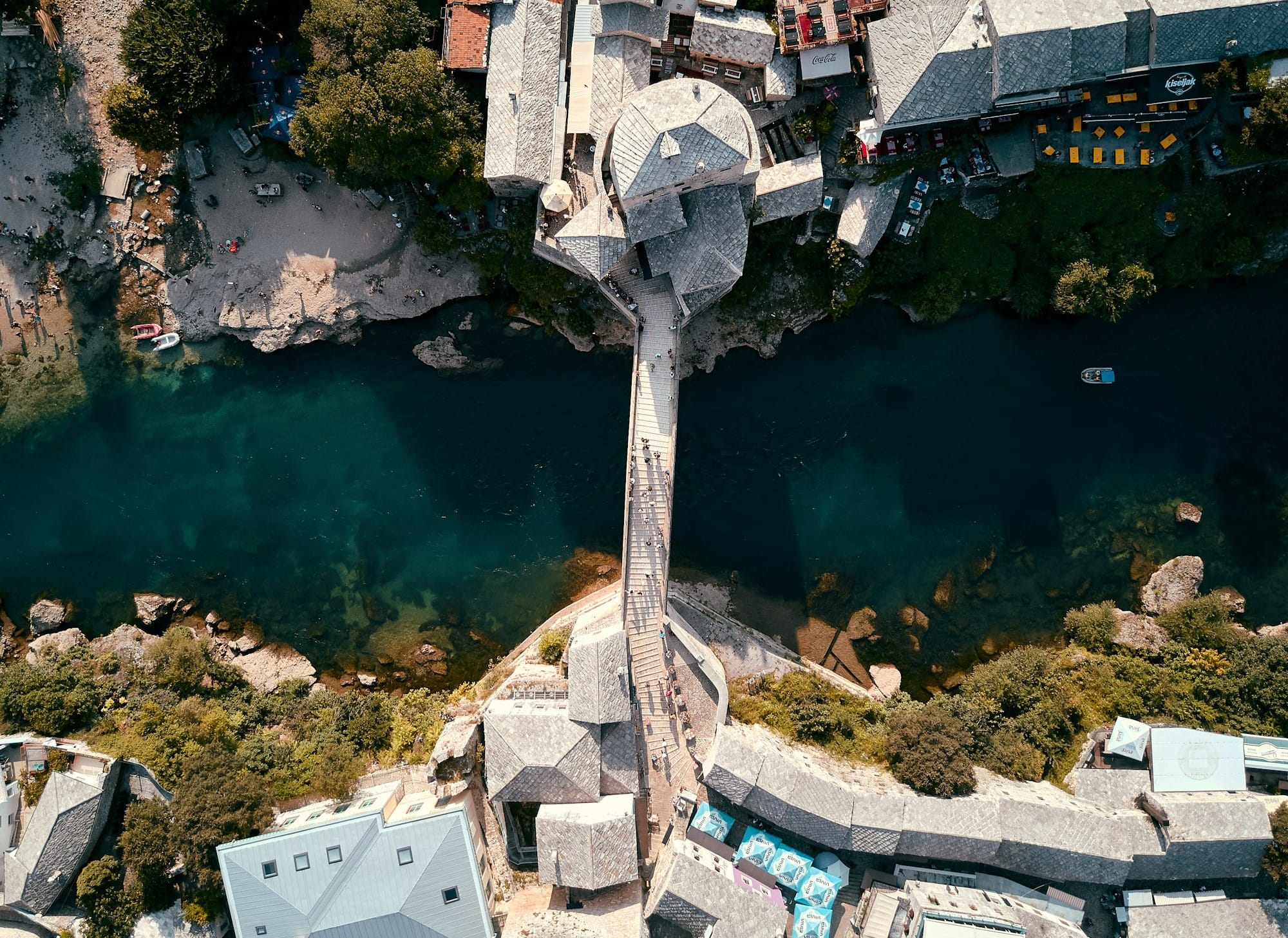A Passage to Bosnia: The Unexpected Heart of the Balkans

Bosnia is not a country you stumble into. You arrive with some notion, however faint or romantic, of where you’re going. Perhaps the lingering images of the Srebrenica Genocide, fractured war stories from GCSE history or just a scenic desktop wallpaper with the bridge in Mostar - at least this was the extent of my knowledge. Yet, nothing really prepares you for the quiet thunder of this nation.
The capital city, Sarajevo, doesn’t open itself to you immediately. It waits. You walk through the Ottoman old town, across its Latin Bridge, lumbering through quaint streets lined with churches and mosques and museums. Its cobbled alleys hemmed with copperware that catches sunlight like relics of a faded empire being examined under forensic lamps, and you detect the echo of something so familiar and so entirely remote. A place layered with history like the golden, flaky burek you are served on ovular, stainless steel dishes in shadowed side street cafés; meat and pastry, history and religious tradition folded endlessly upon itself.
There’s a particular moment that stays with you, not dramatic or scripted, but small and searing: you’re walking and, unexpected, the adhaan begins to rise. It’s soft but commanding, ancient yet alive, winding its way through backstreets, across the valley and up through the hills like smoke. Five times a day it drapes the city in its wonted delectability.
And you feel something shift.
Because here in the rest of Europe, where secularism reigns and minarets are often seen as symbols of iniquity, Bosnia throws these Western concoctions into the bin. The mosques are not just decorative, they are lived in. In Sarajevo, you can sip Bosnian coffee (or my favourite salep) beside an Orthodox church and an Ottoman era mosque, all within the span of a single gaze. This isn’t some utopian coexistence story; it’s messy and real and still healing. But it exists. You begin to know that Islam here isn’t an import or a guest rather it is native and welcome.
And then there’s Mostar, who's train journey winds through forests and rivers and valleys and lakes. And, when you arrive, its Old Bridge - Stari Most - showcases breathtaking architecture arching over bullet riddled walls, reminding you that beauty in Bosnia was paid for in blood.
You watch a young man who leaps from the bridge into the crashing water below, a tradition, a performance, an exchange of beguiling courage as currency. And once more the adhaan ever rising, even here, it feels like faith is just stitched into the landscape. Not aggressive or uncouth but rather a deafening normality.
At night, back in Sarajevo, the city breathes under the mountainous haze, minarets pricking the sky like needles threading history into the modern day. Bosnia does not ask you to resolve the complexities of its identity; the balancing of religious tradition and post-war rehabilitation. Its existence lays between the grand preservation of its story and the hope rising from the ashes of its martyrs.
Bosnia will forever remain an indelible mark on my heart. It is a country that has denied the venomous cultural degradation of its westernised neighbours. It has managed an overwhelming social polarity in faith and reignited the spirit of its culture for the worlds travellers to experience for years to come, with the Will of Allah.
___
I wanted to capture the essence of my Bosnian experience in this short piece. I cannot do a comprehensive justice to the people, the places and profound inward exploration Bosnia's misty mountains, roaring ravines and belly-filling food has encouraged within me. The Bosnian people have been poisoned by war and hardened by Genocide but remain staunch in advocating for their culture, fighting the poison of encroaching westernisation and flaunting the triumph that is a muslim country, in the heart of Europe, where every faith and every people feel proud to say that they visited a place like Bosnia once in their lives.
Faithfully, Issa.

